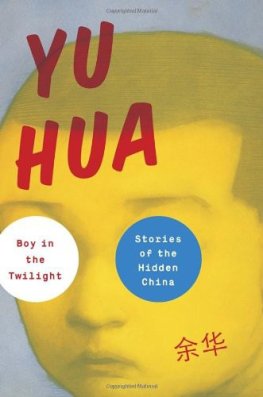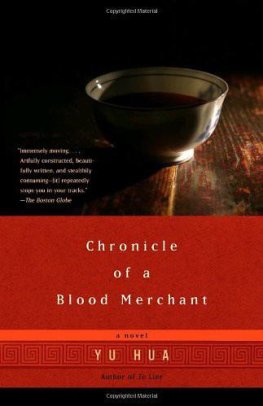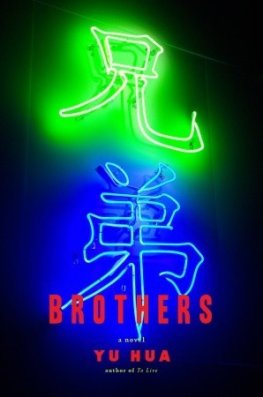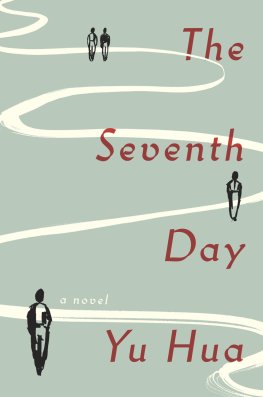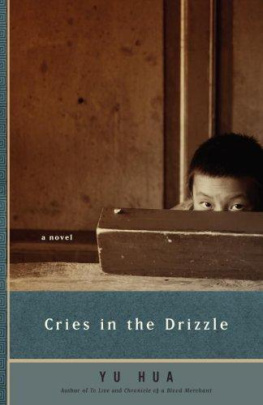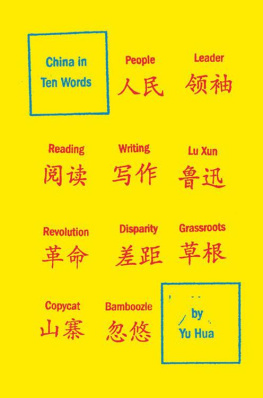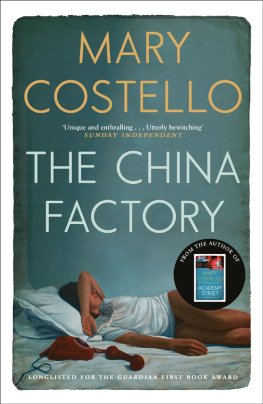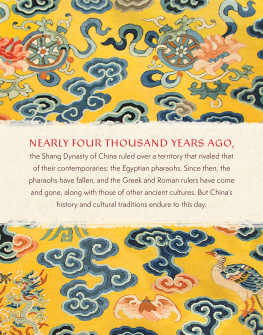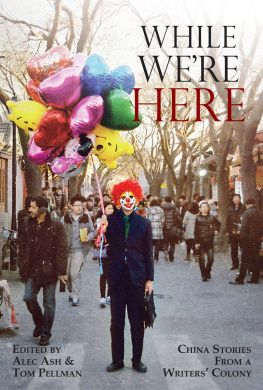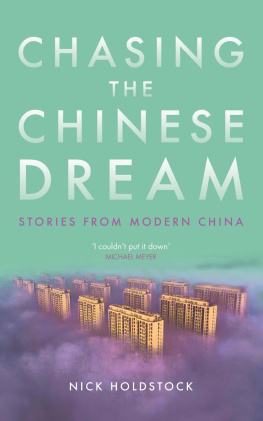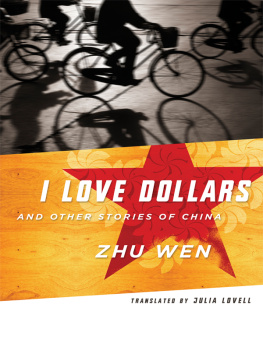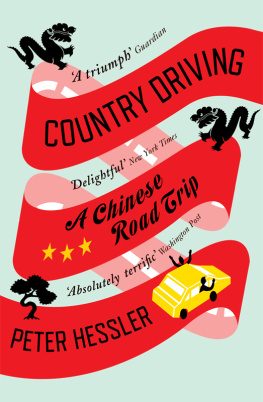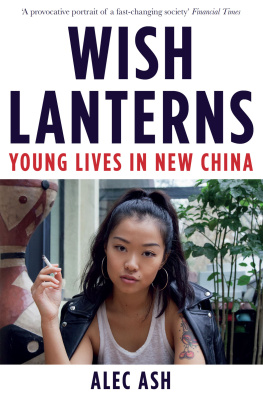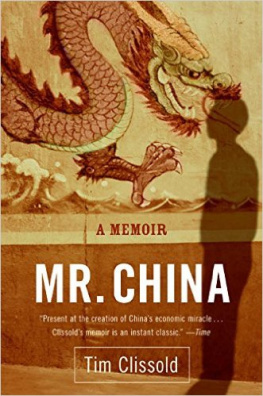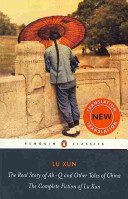Yu Hua
Boy in the Twilight: Stories of the Hidden China
Yu Hua published his first short story in 1983, when he was twenty-three. In the ebb and flow of his writing career since then, the early and mid-1990s stand out as an especially productive phase. Within the space of a few short years he completed a trio of novelsCries in the Drizzle, To Live, and Chronicle of a Blood Merchantthat firmly established him as a major figure in the Chinese literary scene. The reputation of these books, particularly To Live, which was soon adapted for the screen by Zhang Yimou, has tended to overshadow the short fiction that Yu Hua published during this same period. But the stories collected here, all written between 1993 and 1998, represent a distinctive body of work in their own way. Written in a spare, minimalist style, they sketch vignettes of everyday life in contemporary China, in keeping with the popular realism that characterizes To Live and Chronicle of a Blood Merchant. If there is a recurrent theme in Boy in the Twilight, it is the fractures and fluidities in human relationships during the reform era in China: marriages in crisis collapse or rebound, friendships are cemented or betrayed, in a precarious world where events may take an unexpected turn at any time. Yet Yu Hua does not entirely abandon the unorthodox stance of his earlier fiction, and comic absurdity rubs shoulders with tragedy as these stories unfold.
One day, as I crossed the bridge with my carrying-pole on my shoulder, I heard someone say that Pug-nose Xu Asan had died, so I laid down my baskets and took the towel that I wore around my neck and rubbed the sweat off my face while I listened to them talk about how it had happened, how Pug-nose Xu Asan choked to death eating New Year cake. Id heard of someone choking to death on a peanut, but choking to death on New Year cake was a first as far as I knew. It was then they called me. Xu Asan Hey, Pug-nose
When I looked at the ground and went Mm, they burst out laughing.
What have you got in your hand? they asked.
I looked at my hand. Towel, I said.
There were gales of laughter. What are you doing to your face? someone asked.
Rubbing the sweat off, I said.
I dont know why they were so happy. They were laughing so hard they swayed back and forth like reeds in the wind. Wow, he can even say sweat! one of them spluttered, hand on his belly.
Another man was leaning back against the railing. Xu Asan! Pug-nose Asan! he cried.
Twice he said that, so I went Mm twice, too. Who is Xu Asan? he asked, clutching his gut.
I looked at him, and then at the other people next to him. Their mouths were gaping their eyes too. Yeah, who is Pug-nose Xu Asan? they asked.
Xu Asan is dead, I said.
Their goggling eyes blinked shut, but their mouths opened even wider. How loudly they laughed louder still than the clang of iron in the smithy. A couple of them sat down on the ground, and after laughing helplessly for a while one asked me with a gasp, Xu Asan is dead. So who are you?
Who am I? I watched as they laughed fit to bust, unsure how to answer. Ive got no name of my own, but as soon as I walk in the street Ive got more names than anybody else. Whatever they want to call me, thats who I am. If theyre sneezing when they run into me, they call me Sneeze; if theyre coming out of the toilet, they call me Bum-wipe; when they want my attention, they call me Over-here; when they wave me away, they call me Clear-off then theres Old Dog, Skinny Pig, and whatnot. Whatever they call me I answer to, because Ive got no name of my own. All they need to do is take a few steps in my direction, look at me and call out a greeting, and I answer right away.
I thought of what to say. What people call me most often is Hey! So, hoping this was a good answer, I said, I am Hey!
Their eyes widened. Who are you? they asked.
Perhaps Id said the wrong thing. I looked at them, not daring to say more.
Eh, whats that? one asked again. Who did you say you were?
I shook my head. I am Hey.
They looked at each other and laughed, ha ha ha. I stood there and watched them laughing, and I began to laugh myself. People who were crossing the bridge saw us all laughing so loudly, and they joined in. Someone wearing a bright-colored shirt called out to me, Hey!
Mm, I went.
The man in the bright shirt pointed at someone else. Did you go to bed with his wife? he asked.
I nodded. Mm.
The other man started cursing. You son of a bitch!
Then he pointed at the man in the bright shirt. You had a good time in bed with his wife, didnt you? he said.
I nodded. Mm.
Everybody had a big laugh. They often asked me this kind of thing, or asked if Id slept with somebodys mother. Many years ago, when Mr. Chen was still alive before Mr. Chen died, like Pug-nose Xu Asan Mr. Chen, standing under the eaves, pointed his finger at me. The way you people carry on, he said, dont you realize you just end up making him look good? If youre to be believed, it would take several truckloads to carry all the women hes gone to bed with.
As I watched them laughing, I remembered what Mr. Chen said. I went to bed with both your wives, I told them.
When they heard this, their smiles vanished right away and they stared at me. In a moment the man in the bright shirt came over, raised his fist, and hit me so hard my ears were buzzing for minutes afterward.
When Mr. Chen was still alive, he would often sit behind the counter of the pharmacy. There was a huge array of open or unopened little drawers behind his head and he would hold a little set of scales in those long, thin hands of his. Sometimes Mr. Chen would walk to the door of the pharmacy, and seeing me answer to any name I was called, he would say something. He would say, Its such a sin, what you people are doing, and still you get a kick out of it. Therell be a price to pay sooner or later. Everybody has a name, and hes got one too, his name is Laifa.
When Mr. Chen mentioned my name, when he said I was Laifa, my heart would skip a beat. I remember when my dad was alive, how hed sit on the threshold and tell me things. Laifa, hed say, bring the teapot over here.
Laifa, now youre five
Laifa, heres a satchel for you.
Laifa, youre ten already, but still in first grade, damn it.
Laifa, forget about school, help your dad carry coal.
Laifa, just another few years and youll be as strong as I am.
Laifa, your dads not got long to live, not long now the doctor says Ive got a tumor in my lung.
Laifa, dont cry. Laifa, when Im gone you wont have your mom, or your dad either.
Laifa, Lai fa, Lai , Lai fa, Laifa, your dad is dying Laifa, feel here, your dad is getting stiff Laifa, look, your dads looking at you
After my dad died, I made my rounds and walked the streets, delivering coal to people all around town. Laifa, wheres your dad? they would ask.
He died, I said.
They would chuckle. Laifa, what about your mom?
She died, I said.
Laifa, are you a halfwit?
I nodded. Im a halfwit.
When my dad was alive, he would say to me, Laifa, youre a simpleton. You were in school for three years, but you still cant recognize a single character. Laifa, its not your fault, its your moms fault. When she was giving birth, she squeezed your head too tight. Laifa, its not your moms fault either. Your head was too big, you were the death of her
LAIFA, HOW DID YOUR MOM DIE? they asked.
She died in childbirth, I said.
Which child was that? they asked.
Me, I said.
How did she give birth to you? they asked again.
With one foot in the coffin, I said.

